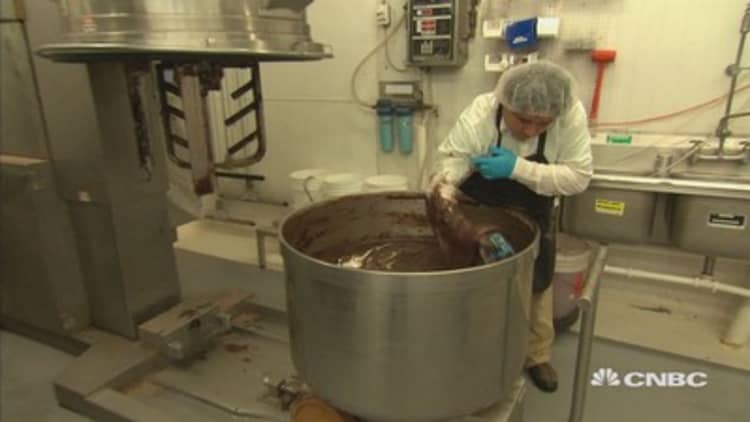
Susan Axelrod admittedly got into business by accident. The Long Island, New York, housewife began making quiches in her home kitchen in 1973, and grew her company, Love & Quiches Gourmet, in part by exporting her products to places such as Qatar and Japan.
She was able to reach overseas markets thanks to the Export-Import Bank of the United States, a government-backed financial institution that makes and guarantees loans. The bank also offers insurance to American companies so they can do business overseas.
But come Tuesday, the 81-year-old bank's charter expires. And without reauthorization, the financial institution cannot do any new business. The bank for years has been a lifeline for many small businesses, which may be left to fend for themselves in potentially lucrative overseas markets.
If the bank's charter is not reauthorized, "the U.S. is going to lose our exporting power," Axelrod said. "China and other exporting countries are chomping at the bit to take that business." She said as much as 30 percent of her business comes from international markets.
In fiscal year 2014, the Export-Import Bank—known as "Ex-Im" bank for short—did $20.5 billion in financing. That figures includes more than $5 billion in financing and insurance for small businesses that make up $27 billion in U.S. exports and 164,000 American jobs.
The remaining $15.5 billion goes toward other places, including financing for big corporations, bank critics say.
Larger companies that have received Ex-Im Bank financing in the past include General Electric and Boeing. Spokespeople for both corporations were not immediately available for comment.
"Most of this goes to very successful, well-heeled companies that don't need the help in the first place," says Rep. Jeb Hensarling, Texas Republican and chairman of the House Financial Services Committee.
Hensarling says he instead favors scaling back regulation and tax reform to help small businesses.
Still, while small businesses pocket $5 billion in financing from the Ex-Im Bank, Main Street businesses make up about 90 percent of the overall business the Ex-Im Bank does.
And earlier this month, GE Co-Chairman Jeff Immelt told Reuters the company would move manufacturing jobs to Canada and Europe if the Export-Import Bank closes.
Read More
While there's no scheduled vote on the bank's future, Congress may take up this issue in July. A reauthorization vote may be attached to a highway and transportation bill in the Senate.
A spokesman for the bank said its charter runs through the end of fiscal year 2015, and some of its loans can have terms of up to 18 years, which will remain intact.
"If Ex-Im Bank's charter expires, the bank will continue to service all of its commitments and manage its portfolio until maturity, including collecting funds, processing claims and making payments where it is obligated to do so," said the spokesman in an email to CNBC.
Meanwhile in Freeport, New York, Axelrod is confident she will be able to find a new insurance company to cover their receivables overseas. But she worries other small businesses will assume more risk, or forgo exporting alltogether.
Says Axelrod, "There's just more risk, and when you're a small business, you have to limit your risk."
Read More As barriers to entry fall, more entrepreneurs take the plunge


